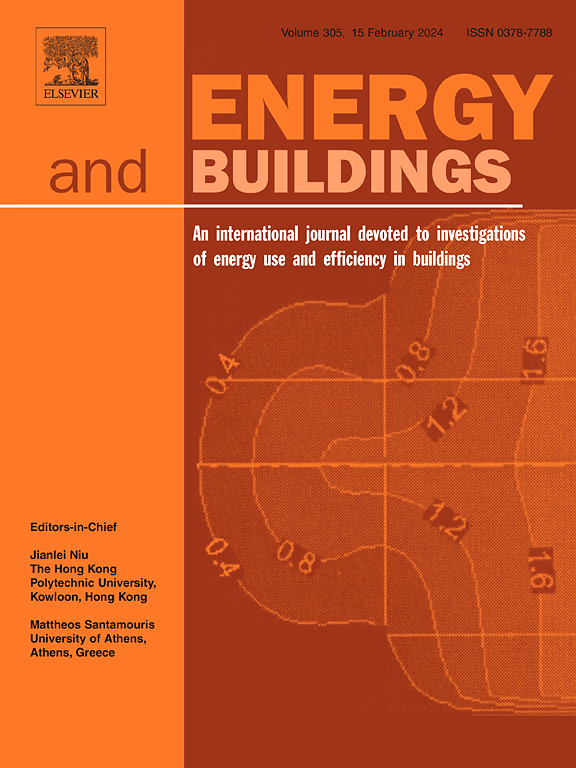Home energy management system based on applied real-time load scheduling for self-consumption enhancement
IF 7.1
2区 工程技术
Q1 CONSTRUCTION & BUILDING TECHNOLOGY
引用次数: 0
Abstract
In the era of sustainable energy, solar home systems (SHS) play a pivotal role in decentralized power generation. However, optimal solar energy utilization remains challenging due to variable generation and demand patterns. This work introduces an applied approach to load scheduling in SHS, focusing on real-time optimization of photovoltaic (PV) energy consumption using particle swarm optimization (PSO) to minimize prosumer grid exchange and achieve a high self-consumption rate. The study employs real-time scheduling algorithm of household appliances, aiming to dynamically adjust their operation time to match solar generation and household demand, by exploiting real-time data and forecasted PV power production. The proposed strategy was implemented on a Raspberry Pi in solar house demonstrator, using forecast PV production profiles and measured household consumption. In addition, a low-cost Wi-Fi control device has been developed to automatically switch shiftable appliances. The results obtained demonstrate the effectiveness of the proposed approach by minimizing the grid export power by more than 78% and enhancing the self-consumption rate by up to 42%. The findings highlight the potential of real-time load scheduling as a viable solution for improving the efficiency and sustainability of solar home systems without affecting user comfort, contributing to advance intelligent energy management in home areas.
基于实时负荷调度的家庭能源管理系统应用于自我消纳增强
在可持续能源时代,太阳能家庭系统(SHS)在分散式发电中发挥着举足轻重的作用。然而,由于发电和需求模式的变化,最佳的太阳能利用仍然具有挑战性。本文介绍了一种应用于SHS负荷调度的方法,重点研究了利用粒子群优化(PSO)对光伏(PV)能耗进行实时优化,以实现产消电网交换最小化和高自耗率。本研究采用家用电器实时调度算法,利用实时数据和预测的光伏发电量,动态调整其运行时间,以匹配太阳能发电和家庭需求。所提出的策略在树莓派太阳能屋演示器上实施,使用预测的光伏生产概况和测量的家庭消费。此外,还开发了一种低成本的Wi-Fi控制设备,可以自动切换可移动设备。结果表明,该方法的有效性,使电网输出功率降低了78%以上,自用率提高了42%。研究结果强调了实时负荷调度作为一种可行的解决方案的潜力,可以在不影响用户舒适度的情况下提高太阳能家庭系统的效率和可持续性,有助于推进家庭领域的智能能源管理。
本文章由计算机程序翻译,如有差异,请以英文原文为准。
求助全文
约1分钟内获得全文
求助全文
来源期刊

Energy and Buildings
工程技术-工程:土木
CiteScore
12.70
自引率
11.90%
发文量
863
审稿时长
38 days
期刊介绍:
An international journal devoted to investigations of energy use and efficiency in buildings
Energy and Buildings is an international journal publishing articles with explicit links to energy use in buildings. The aim is to present new research results, and new proven practice aimed at reducing the energy needs of a building and improving indoor environment quality.
 求助内容:
求助内容: 应助结果提醒方式:
应助结果提醒方式:


